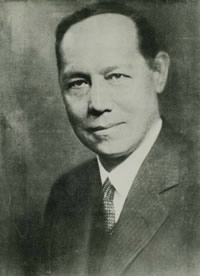
Enrique Alfredo Olaya Herrera was a Colombian journalist and politician. He served as President of Colombia from 7 August 1930 until 7 August 1934 representing the Colombian Liberal Party.
This article gives an overview of liberalism in Colombia. It is limited to liberal parties with substantial support, mainly proved by having had a representation in parliament. The sign ⇒ means a reference to another party in that scheme. For inclusion in this scheme it is not necessary for the parties to have labeled themselves as a liberal party.
This article gives an overview of liberalism in Panama. It is limited to liberal parties with substantial support, mainly proved by having had a representation in parliament. The sign ⇒ means a reference to another party in that scheme. For inclusion in this scheme it isn't necessary so that parties labeled themselves as a liberal party.

The 19th of April Movement, or M-19, was a Colombian urban guerrilla movement active in the late 1970s and 1980s. After its demobilization it became a political party, the M-19 Democratic Alliance, or AD/M-19.
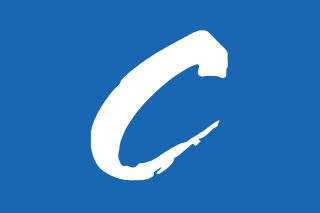
The Colombian Conservative Party is a conservative political party in Colombia. The party was formally established in 1849 by Mariano Ospina Rodríguez and José Eusebio Caro.
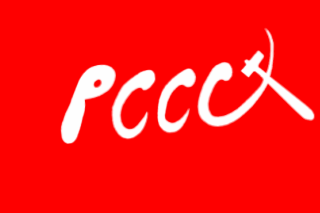
The Clandestine Colombian Communist Party was an underground communist party in Colombia. It was politically linked to the Revolutionary Armed Forces of Colombia (FARC), which founded the party in 2000. After FARC officially broke with the Colombian Communist Party (CCP), a separate FARC-based party structure came into de facto existence during most of the 1990s, until the PCCC was officially founded in 2000. The party's founder and leader was FARC's commander Guillermo León Sáenz, also known as "Alfonso Cano", who was killed in action in 2011.
The Social and Political Front or FSP was a coalition of several left wing political parties in Colombia.

The Indigenous Authorities of Colombia is a progressive indigenist political party in Colombia.

The Independent Social Alliance, known as the Indigenous Social Alliance until 2011, is a progressive indigenist party in Colombia. At the last legislative elections, 10 March 2002, the party won parliamentary representation, one of many smaller parties.
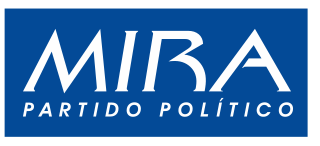
The Independent Movement of Absolute Renovation is a political party in Colombia, founded on March 21, 2000 by 51,095 Colombians led by lawyer and former senator Carlos Alberto Baena and Alexandra Moreno Piraquive. The party also has functions as a non-profit organization. It has representation in the Chamber of Representatives and in the Senate of the Congress of Colombia, and has also participated in the public corporations of Colombia at a regional level, being stated as the eighth-most influential political force in the country.
The history of Socialism in Colombia goes back as far as the 1920s and has its roots in the ideas of the Russian October Revolution. Today guerrilla groups, self-proclaimed communists, state that they want to seize state power in Colombia by violent means, and organizations such as the National Liberation Army (ELN) continue their four decades old war with the United States-backed Colombian government.
Colombian Conservatism is a system of conservative political beliefs in Colombia that is characterized by protectionism, support for Catholic values, social stability and anti-totalitarianism. Its history began with the creation of two conservative political parties in Colombia. One characteristic of Colombian Conservatism, in contrast to many other geographic subsets of conservatism, is its strong emphasis on protectionism, which is considered by many Colombian conservatives to be necessary to create a fair market.
National Front was a period in the history of Colombia in which the two main political parties, the Liberal Party and the Conservative Party, agreed to rotate power, intercalating for a period of four presidential terms. The National Front Presidents were Alberto Lleras Camargo (Liberal), Guillermo León Valencia (Conservative), Carlos Lleras Restrepo (Liberal), and Misael Pastrana Borrero (Conservative).
Guerrilla movements in Colombia refers to the origins, development and actions of guerrilla movements in the Republic of Colombia. In the context of the ongoing Colombian conflict, the term 'guerrilla' is used to refer to left-wing movements, as opposed to right-wing paramilitaries.
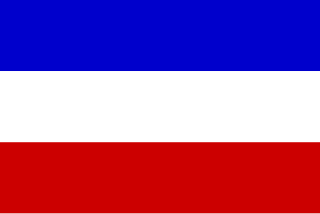
The National Popular Alliance or ANAPO was a political party in Colombia. It was founded in 1961 as a movement by the ex-president Gustavo Rojas Pinilla and was disbanded in 1998. Many ANAPO leaders and militants joined the Independent Democratic Pole coalition.

Presidential elections were held in Colombia on 25 May 2014. Since no candidate received 50% of the vote in the first round, a run-off between the two candidates with the most votes took place three weeks later on 15 June 2014. According to the official figures released by the National Registry office, as of 22 May 2014 32,975,158 Colombians were registered and entitled to vote in the 2014 presidential election, including 545,976 Colombians resident abroad. Incumbent president Juan Manuel Santos was allowed to run for a second consecutive term. In the first round, Santos and Óscar Iván Zuluaga of the Democratic Center were the two highest-polling candidates and were the contestants in the 15 June run-off. In the second round, Santos was re-elected president, gaining 51% of the vote compared with 45% for Zuluaga.
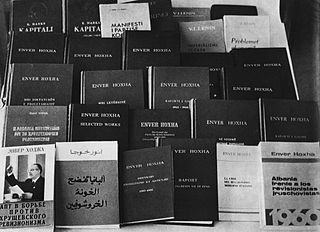
Hoxhaism is a variant of anti-revisionist Marxism–Leninism that developed in the late 1970s due to a split in the anti-revisionist movement, appearing after the ideological dispute between the Chinese Communist Party and the Party of Labour of Albania in 1978. The ideology is named after Enver Hoxha, a notable Albanian communist leader, who served as the First Secretary of the Party of Labour.

Parliamentary elections were held in Colombia on 11 March 2018 to elect 102 members of the Senate and 165 members of the House of Representatives.

Humane Colombia, formerly known as the Progressive Movement, is a Colombian left-wing political movement and party founded in 2011 and led by President Gustavo Petro. The youth wing of the party is known as Juventud Humana.












